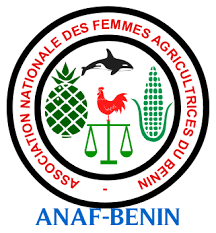Women, soil and energy (FSE)
Atacora and Donga, located in northwestern Benin, are two predominantly rural departments. The context of this territory, like a good part of the rural areas in Benin, is marked by:
- a prominent role of women in agricultural and food production activities, as well as in the production and use of household energy. Despite this, they do not enjoy sufficient participation in the decision, both in family farms and in communities;
- the prevalence of unsuitable agricultural practices, with the combined effect of insufficient food production and deterioration of production conditions and the environment;
- insufficient diffusion and access by families to efficient energy solutions that limit greenhouse gas emissions.
Our action
The Women, Soil and Energy project intervenes in 5 Communes in the departments of Atacora and Donga. Women, both beneficiaries and actresses, are targeted by the project as key actors in order to take ownership of innovations and to create changes within families and village communities. The ESF project strengthens women by offering them capacity building and adequate support to support their rural activity projects (especially microfinance). Their position in the community is valued.
Intervention areas :
In the department of Atacora : the villages of Toucountouna, Natitingou and Boukombe
In the department of Donga : the villages of Ouaké and Copargo
Project duration : 30 months – November 2016 – April 2019
Overall budget : € 270,917 with AWAC financing € 215,381.
Operational partners : Bénin Ecotourism Concern (Eco Bénin) and Association Nationale des Femmes agricultrices du Bénin (ANaF-BENIN)
Financial partners : Agence Wallonne de l’Air et du Climat (AWAC)
Direct beneficiaries:
- wood energy users: 1,200 women
- carriers of income-generating initiatives: 400 women
- Production actresses on family farms: 400 family farms
- members of women farmers’ organizations: 400 women
- Women-relays of change in village communities: 1000 people
Indirect beneficiaries:
- The project indirectly benefits the family members of the women supported, all the members of the producer groups, and all the members of their village communities.


